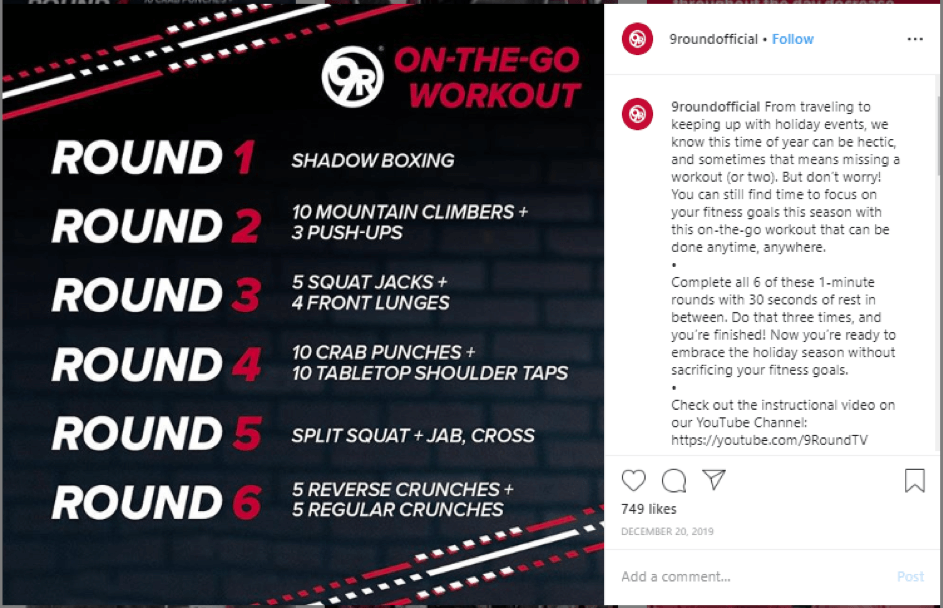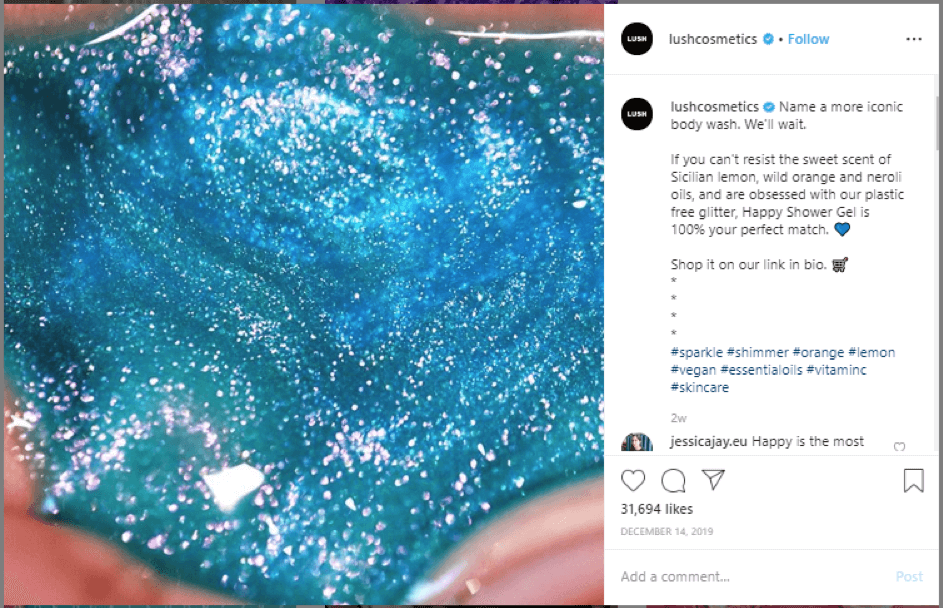14 Best Social Media Automation Tools To Leverage in 2023
We know the struggles of social media managers: juggling multiple accounts, keeping up with content creation, and never quite having enough hours in the day. 🥵 Well, we’ve got your...

Instagram is a growing social platform that features a dazzling array of great visuals. It’s perfect for connecting with customers on a personal level, with a range of creative features to engage your audience.
But one oft-overlooked but important aspect of the platform is your Instagram captions. They add value to your visual content and keep people locked into your posts, so they’re worth doing right. In this article, we’ll look at how to write and caption Instagram posts in a way that resonates with your target audience.
The perfect Instagram post takes time and effort to create. Check out these six biggest Instagram mistakes to avoid when you’re creating your next Instagram post.
The first sentence of your Instagram caption is absolutely crucial.
By default, Instagram shortens captions after a few lines, around three or four. If you want to write good Instagram captions, you need to load your first sentence with a hook that grabs your followers.
This competition post from travel brand Expedia is a perfect example of a stellar opening sentence:

The offer of a $50K holiday giveaway is a compelling offer that will make any globetrotter stop in their tracks. Bookended by present emojis (more on these later), it makes a clear and attractive offer to Expedia followers that immediately grabs their attention.
Make it interesting and irresistible — a competition offer like Expedia, for instance, or the promise of a freebie. Though the visual content of your post will make your followers pause while scrolling through their feed, your first line will compel them to click the ‘See More’ button to expand the caption.
While your first sentence should hook your followers, the rest of your caption should keep them locked in. Once you have their attention, you need to keep your followers engaged by offering them something of genuine value.
Shallow captions that don’t provide anything useful or interesting ultimately don’t encourage people to stay reading. But if you offer something valuable, you give them a reason to stay, engage, and share your post.
Check out this post from fitness brand 9Round for an example of a value-led caption:

The captions work with the image to educate followers about a quick workout they can do over the holidays. It’s simple, concise, and appeals to 9Round’s target audience of people interested in fitness.
What value looks like for you will vary depending on your business and industry. It might include tips, guides, useful tricks, or even a story. You can inform, update, educate, or even entertain with your caption — as long as it stimulates your followers enough to keep them reading, it’s valuable.
Pro Tip: No matter what your caption is about and how it provides value to your audience, you have to make sure there’s correct punctuation and no grammar mistakes. A blend of easy-to-read words, catchy ideas, and transition words without any typos and spelling mistakes gives a professional look to the description and grabs the attention of your audience.
Hashtags are a crucial part of understanding how to write Instagram captions that get noticed. They get your content seen by the right people, engaged with relevant topics that you’re posting about. That means you need to conduct some thorough hashtag research.
As with other aspects of writing better Instagram captions, there is a magic number for hashtag usage on your posts. 11 is the optimum number, with nine the minimum.
But if you really want to get the most from your Insta captions, you should use a blend of diverse but relevant hashtags.
Diversity in terms of hashtags means using broad hashtags (e.g. #christmas) and more specific ones (e.g. #christmasrecipes). This helps you net more diverse traffic. In terms of relevance, however, your hashtags need to actually relate to the content you’re posting. If someone arrives at your post expecting one thing but getting another, you’ll lose them.
The best Instagram captions aren’t those written right there and then. All professional brands spend time drafting, editing, and redrafting their Insta captions for the best results.
To that end, plan your Instagram calendar ahead of time. Brainstorm some rough ideas for what to post at the start of the year — a few general ideas will cover your back throughout the year, and you can go more specific later on in the year.
Once you have a few ideas, you can draft and plan your posts with Kontentino.
This gives you an oversight of how your Instagram calendar will look like in grid format, plus it makes it easy for your team to run each caption through the editorial process and work together to create perfect Instagram content.
It’s also worth using this opportunity to plan your hashtags too. Use the hashtag research mentioned earlier to source and collect potential hashtags you might use. This makes it easy to collate and manage your hashtags and improve your strategy further down the line by seeing what works and what doesn’t.
Emojis are a fun but polarizing thing. For some, they are a creative way to liven up an Instagram caption. But for others, they are an indulgence that detracts from a post’s professionalism.
Ultimately, it all comes down to your branding. If you’re a fun, irreverent brand, then emojis are fine. But if you’re a more subdued, professional B2B brand, then you might want to eschew emojis.
Knowing how to caption Instagram posts with emojis means knowing how many emojis you should use. The magic number for emojis in your Insta captions is between 2-3.
It’s also worth creating an approved set of emojis that your brand uses in your captions. Having a bank of approved emojis helps you know how to caption Instagram photos in a way that suits your brand personality.
For instance, fun or quirky brands might use more expressive emojis that feature faces or people, while an edgier business might lean more heavily on symbols. This post from fast food chain Wendy’s:

While the brand only uses a single emoji, the flame symbol echoes the reference to spicy food without overdoing it. Plus, because Wendy’s famously has a tongue-in-cheek tone of voice, the emoji feels like a natural part of their brand personality.
It’s worth mentioning Emojipedia here. As the name suggests, Emojipedia is an online encyclopedia that lets you browse virtually every emoji ever created. It also lets you copy emojis from the encyclopedia so you can paste them into your Instagram scheduling app or the caption spreadsheet mentioned earlier.
Knowing how to write Instagram captions means knowing the magic number for characters.
Of course, the optimum character length for good Instagram captions varies depending on who you ask and what industry you’re in, but as a rule of thumb try to keep it between 138 to 150, with some sources saying 125 is best.
Depending on the type of post you’re writing, this can be tricky. For instance, if you’re writing a post promoting a competition, you’ll need to use more characters to explain the entry details.
But rules are made to be broken. As long as your captions are concise and don’t use more words than needed, you’ll be okay.
It’s also worth thinking about how the caption will look visually on the page. Rather than writing it all out in thick chunks of dense text, break it up into one or two sentences per line. If you’re listing something, use bullet points to delineate it and make it look better.
As well as just looking neater, this also makes your caption easier to read on mobile devices.
The best Instagram captions are those that work in tandem with the content they accompany. Your caption should relate to your image, and your image should relate to your Instagram caption.
It might seem self-evident, but a core part of knowing how to caption Instagram posts is understanding the importance of relevance. There is no shortage of Instagram posts that have perfect captions and beautiful visuals but have absolutely nothing to do with each other.
The link between your Insta caption and your photo doesn’t need to be overt. But as long as the viewer can make some semantic connection between the two, it’s enough to stay relevant.
For example, if you are promoting a mattress brand, your Instagram posts will not only revolve around sleep accessories but also about quality sleep, the importance of sleep and how sleep plays a role in people’s success.
All of these topics are quite relevant to each other giving a syncing feel around your Instagram content. However, if you find that a large number of your target audience likes something in common, for example, a drink or a cosmetic product or any other thing, instead of talking about it from a simple angle, try to figure out how it can relate to your niche. Once found, publish it from your brand’s angle to make things unique and personalized for your audience.
Call-to-actions (or CTAs) play an important role in your Instagram strategy. CTAs guide your users down your stipulated journey, helping them take the action you need them to in order to convert.
But the calls-to-action on your website, product pages, landing pages, or email marketing are different from those on your Instagram captions. So how do you caption Instagram posts in such a way where CTAs actually resonate with your followers?
For a start, avoid using salesy CTAs such as “click here” or “buy today”. These jar with the social nature of Instagram, turning a creative piece of engaging content into a sales-led piece that drives users away.
It’s important to remember that Instagram users already know how to use social media. They know they need to click links and swipe up on Instagram Stories.
Instead, assume your followers have the requisite knowledge and guide them towards your desired action subtly instead.
Above all, write like a real human being in your Instagram captions.
Instagram is a social platform, and what really matters (and resonates) on social is authenticity. Your posts will appear alongside those of your followers’ friends and family, so it’s important that you blend in.
That’s not to say you can’t use your captions to further your business goals. But you should do so in a way that feels natural and readable. Avoid business jargon wherever possible and use simple, common words that everyone understands.
The cosmetics brand Lush does this perfectly in its Instagram posts:

With a friendly tone and informal vernacular, the brand’s captions feel conversational and relatable. But the post is also a fine advert for its Happy shower gel, pushing the product in a way that feels natural and organic.
Of course, as with a lot of items on this list, your approach might vary depending on your audience. If your audience is in a specific field (for instance, recruitment or HR), then it’s okay to use certain words or phrases. But if you’re writing for the average consumer, then keep it simple and readable.
While your visuals are important, your Instagram captions should also be carefully planned and written too. Use the tips outlined above and write better Instagram posts that will keep your followers engaged with every post.